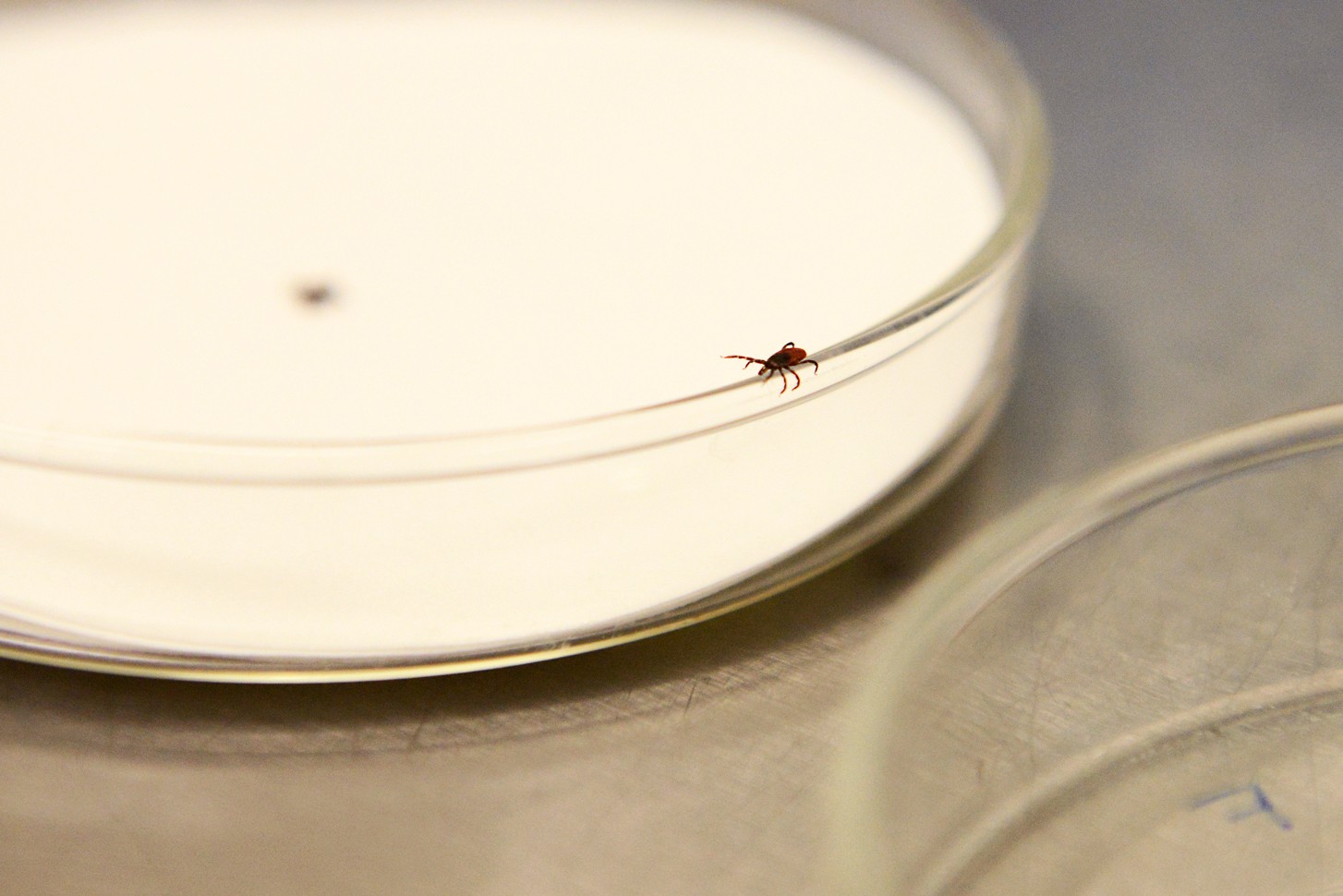A University of Minnesota researcher is using a novel concept to conduct research: miniature labs.
Rather than bring materials to a laboratory for analyzing and testing, Peter Larsen is transporting the lab into the field. Called a “mobile lab,” Larsen and his fellow researchers are using the tool to more efficiently conduct tests and analyze data. They are hoping to convince others to integrate mobile labs into their own work.
Larsen developed the mobile lab while at Duke University and brought the concept with him when he came to the University of Minnesota in 2018.
For a week over the summer, Larsen and a team of researchers brought the lab to Itasca State Park to study ticks and genetic variations of Lyme disease.
The entire lab fits neatly into two suitcases. The mobile lab contains the tools used in a normal lab, such as a thermal cycler and incubators, just miniature.
While out in the woods, the researchers were able to use the mobile lab to screen different tick samples and sequence DNA while on location. They had results within 12 hours when the process usually takes days.
Normally, the researchers would collect samples out in the field and transport them back to their lab, where they are then sent out for testing. The mobile lab cuts down the large amount of time it usually takes to conduct these tests.
“This is very cutting-edge,” said Laramie Lindsey, a postdoctoral student in Larsen’s lab. “It makes things very streamlined.”
Analyzing and testing the data on the spot also preserves the integrity of the samples collected, which is something that can be compromised when samples are transported long distances, Lindsey said.
“The mobile lab provides … mobility as well as flexibility and accessibility to these new technologies,” said Kenwyn Shriner, a graduate student who worked in Larsen’s lab over the summer through a scholar’s program.
Along with making research more time-efficient, the lab allows researchers to gather samples in remote places they otherwise would not be able to.
In August, Larsen took his team and the mobile lab to a remote jungle site in Malaysia. They worked with a university there and were able to collect data and analyze samples on the spot.
Larsen said this analysis normally would have been difficult to do because the material collected would need to go back to Minnesota for testing.
Being able to transport the lab around the world opens up research in regions that may not have developed infrastructure to do things like preserve samples and transport them long distances for testing, Shriner said.
As part of the effort to promote the concept of the mobile lab, the team gave researchers and students from Malaysia their own mobile lab and taught workshops on how to operate it.
Those involved with the work said there has been a lot of interest from other researchers in the lab.
“This is an exciting time,” Larsen said. “As this miniature tech becomes available, it opens up many opportunities for discovery and collaboration.”
















